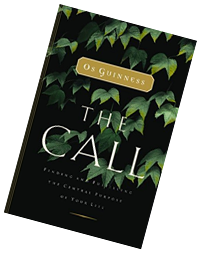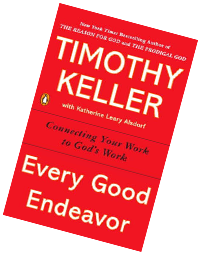Back to series
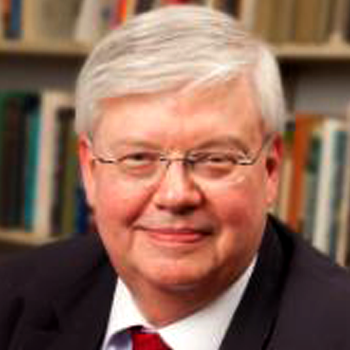

Recommended Reading:
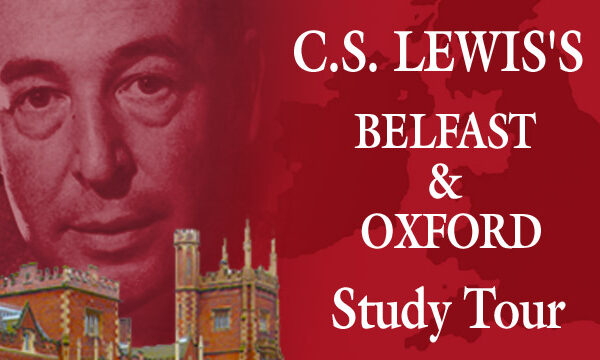
Download or Listen to Audio
The Importance of Calling
Click here to open a Print - Friendly PDF
[This article is the second in a two-part series that addresses vocation and calling. The first article, titled “The Importance of Vocation,” was published in the Summer 2018 issue of Knowing & Doing. The series is based on a talk Mark Talbot gave to the Fellows of the C.S. Lewis Institute – Chicago on March 3, 2018. It is adapted from his recent book by Dr. Talbot, When the Stars Disappear: Understanding and Coping with Our Suffering (Crossway).]
As Merriam-Webster clarifies, the English vocation comes from the Latin vocatio, meaning “summons, bidding, invitation, from vocatus (past participle of vocare to call),” and calling from the Middle English callen, to call. So vocation and calling mean the same thing. I have divided them because Christians need to emphasize our common vocation over what each of us as individuals is specifically called to do.
 We must do this for several reasons. First, we need to remember that God declared he would make humankind so that they would multiply and have dominion over all the earth (see Gen. 1:26–28). We are created to live and act socially (see, e.g., 1 Cor. 12:12– 19). God has chosen us to be his people (1 Pet. 2:4–5, 9–10), the body of Christ (see Rom. 12:4–5; 1 Cor. 12:27). The Lord promised to make Abraham a great nation through whom all the nations of the earth would be blessed (see Gen. 18:18; 22:18). Now he is working through Christ to redeem an obedient people who serve him and thus fulfill his promise to Abraham (see 1 Pet. 2:16; Gal. 3:8). Redeemed humanity is to exercise dominion over creation and thus bring him glory.1 This is our common Christian vocation that we are to pursue together. All individual callings are subordinate to this.
We must do this for several reasons. First, we need to remember that God declared he would make humankind so that they would multiply and have dominion over all the earth (see Gen. 1:26–28). We are created to live and act socially (see, e.g., 1 Cor. 12:12– 19). God has chosen us to be his people (1 Pet. 2:4–5, 9–10), the body of Christ (see Rom. 12:4–5; 1 Cor. 12:27). The Lord promised to make Abraham a great nation through whom all the nations of the earth would be blessed (see Gen. 18:18; 22:18). Now he is working through Christ to redeem an obedient people who serve him and thus fulfill his promise to Abraham (see 1 Pet. 2:16; Gal. 3:8). Redeemed humanity is to exercise dominion over creation and thus bring him glory.1 This is our common Christian vocation that we are to pursue together. All individual callings are subordinate to this.
Second, if we initially ask, What am I to do?, instead of, What are we to do?, the full social and vocational context of all of our activities tends to be eclipsed. From our redemption onwards we are to spend our lives no longer “chasing [our] own desires” but eager to do God’s will (1 Pet. 4:2 NLT; cf. 1 Cor. 6:19–20). We are to view our individual callings as gifts that enable us as God’s people to fulfill our common vocation of glorifying him and serving each other (see 1 Cor. 10:31; 1 Pet. 4:10–12; Rom. 12:4–8).
 Third, to view our individual callings within the context of the fulfillment of our common human vocation dignifies even the most mundane tasks. As societies develop, the tasks to which their members may be called proliferate. Our society requires not only doctors and lawyers but also trash collectors, caregivers, and cashiers. Individual Christians may be called to help fulfill our common vocation by means of fulfilling any of these tasks. Secular society considers the professions to represent life’s higher estates or stations. But Christians should not (see 1 Cor. 12:12–20).
Third, to view our individual callings within the context of the fulfillment of our common human vocation dignifies even the most mundane tasks. As societies develop, the tasks to which their members may be called proliferate. Our society requires not only doctors and lawyers but also trash collectors, caregivers, and cashiers. Individual Christians may be called to help fulfill our common vocation by means of fulfilling any of these tasks. Secular society considers the professions to represent life’s higher estates or stations. But Christians should not (see 1 Cor. 12:12–20).
Any calling that cares for God’s creation can be appropriate for a Christian. A believer could be called to any of them depending on the person’s circumstances, gifts, and time of life (see 1 Cor. 7:17). We need sanitation workers, personal care aides, and farm laborers as much as we need educators and airline pilots. No matter what our estate or station, if we do God’s will from our hearts, always working “with a good will as to the Lord and not to man,” then we can know “that whatever good [we do], this [we] will receive back from the Lord” (Eph. 6:6–8).
We could spend some time exploring the biblical view of calling, but that topic was covered pretty well in the pieces you were asked to read, including the biblical passages.2 The biblical idea of an individual calling is modeled magnificently in both Nehemiah 1–2 and Daniel 1–6. So I want to go on to help you think about how you can begin to fulfill your biblical vocation by spending enough time each day in God’s written word.
The Five Parts of Life
All of us are called to “grow in the grace and knowledge of our Lord and Savior Jesus Christ” (2 Pet. 3:17). We must learn the truth that leads to godliness (see Tit. 1:1). And so we are all, in light of the mercies God has shown us in Christ, to give him our bodies as living sacrifices and acts of intelligent worship, “consecrated to him and acceptable by him.” We mustn’t let the world around us squeeze us into its own mold, but we must let God remold our minds, so that we “may prove in practice that the plan of God for [us] is good, meets all his demands and moves [us] towards the goal of true maturity” (Rom. 12:1–2).3
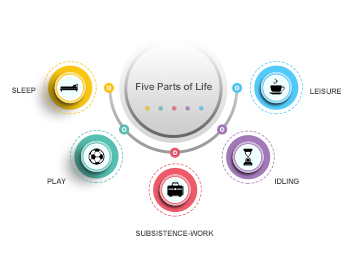
Paul’s exhortation that we present our bodies to God as acts of intelligent worship is crucial here, for embodied persons cannot consecrate themselves to anything without some significant investment of their time. To be embodied persons means that our personhood resides in our bodily being — and so what we do with our bodies is what we do as persons. We cannot consecrate ourselves to God as persons without consecrating our bodies to him as we live and move in space and time. Indeed, “we must all appear before the judgment seat of Christ, “so that each of us may receive what is due us for the things done while in the body, whether good or bad” (2 Cor. 5:10 NIV). Proverbs 4:7 makes a similar point when it exhorts, “The beginning of wisdom is this: Get wisdom. Though it cost all you have, get understanding” (Prov. 4:7 NIV). “Though it cost [us] all we have” — we must get biblical wisdom and understanding even if it were to cost us all that we possess in time, in money, in the radical transformation of the multifarious ways we live out our everyday lives.4 Getting biblical wisdom and understanding must be our first priority. We must be willing to pay for it by outlays of our time and energy.
 What does this mean, practically? How can we get a grasp on our use of our time and then spend it appropriately? Mortimer Adler’s analysis of what he called “the five parts of life” revolutionized the way I looked at my life when I first encountered it sometime back in the ’70s. He introduced the idea in his book, The Time of Our Lives: The Ethics of Common Sense.
What does this mean, practically? How can we get a grasp on our use of our time and then spend it appropriately? Mortimer Adler’s analysis of what he called “the five parts of life” revolutionized the way I looked at my life when I first encountered it sometime back in the ’70s. He introduced the idea in his book, The Time of Our Lives: The Ethics of Common Sense.
5Adler started from the question, “How can I make a good life for myself?” He suggested that in order for us to make good lives for ourselves we must consider how we spend our time. In order to do that, he analyzed the various ways we can spend our time into five parts. First, there is what he called sleep, which he used as “the symbol for the whole set of activities that are biologically necessary” for us. It includes not only sleeping, but also eating, cleansing, etc. Second, there is what he called play, using it “to cover not only playing games but also participating in sports, indulging in amusements of one sort or another, and even engaging in such things as sleeping, eating, and exercising when we engage in them, beyond biological needs, for the pleasures that are intrinsic to these activities themselves.” Third, there is subsistence-work — whatever work we may have to do to keep a roof over our heads, clothes on our bodies, and food on our tables. Fourth, there is idling, which is “a way of consuming time by doing nothing or as little as possible beyond the involuntary or autonomic actions of the body itself” — what one generation called “vegging out.”
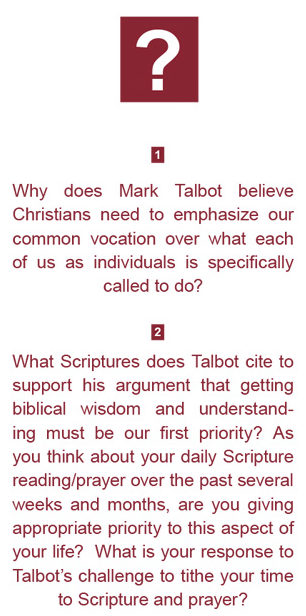 Finally, there is what Adler called leisure. This is a use of our time which “is not absolutely compulsory or biologically useful,” which “does not contribute to health,” and which doesn’t “in its pure form… contribute to the production of consumable wealth,” yet which, unlike play and idling, “is a useful activity, serving an end beyond itself, producing an extrinsic result that is desirable.” Learning, he writes, “in all its forms is the most obvious example of it.” In fact, “[a]nything that contributes to the growth of the individual as a person, not just as a biological organism, belongs in this category, as does anything the individual does that contributes to the improvement of his society — its component institutions and the elements of its culture, its arts and sciences.”
Finally, there is what Adler called leisure. This is a use of our time which “is not absolutely compulsory or biologically useful,” which “does not contribute to health,” and which doesn’t “in its pure form… contribute to the production of consumable wealth,” yet which, unlike play and idling, “is a useful activity, serving an end beyond itself, producing an extrinsic result that is desirable.” Learning, he writes, “in all its forms is the most obvious example of it.” In fact, “[a]nything that contributes to the growth of the individual as a person, not just as a biological organism, belongs in this category, as does anything the individual does that contributes to the improvement of his society — its component institutions and the elements of its culture, its arts and sciences.”
Adler wasn’t writing as a Christian, yet we can be grateful to him for this analysis of the ways we can spend our time. For if these are the five parts of life, I think it is obvious where the study of God’s word, prayer, worship, fellowship, and so on fits in. The activities we must engage in so that God may remold our minds are leisure-time activities.
And so I leave you with an observation and a challenge. There are 168 hours in a week. Let’s assume that about 68 of them are spent in the biologically necessary activities Adler calls sleep. The remaining 100 hours can be divided among the other four kinds of activities. We all need to spend some time doing each. For example, idling and play are important, for not to rest and refresh ourselves is to take ourselves to be something we were not made to be. God intends us to follow a rhythm of work and rest (see Exod. 20:8–11; Luke 9:10). But how much of that 100 hours should be dedicated to leisure — and, more specifically, to spending our time growing in the grace and knowledge of our Lord and Savior Jesus Christ? Of course, life must be lived in chapters, and sometimes we must trim how we spend our time to life’s exigencies. Yet mightn’t it be appropriate over our whole lives for us to tithe a tenth of those 100 hours to studying the Scriptures and great biblical and systematic theology based on God’s word and prayer? That’s about an hour-and-a-half a day. Isn’t that fitting as our acts of intelligent worship to the one who has made and redeemed us? Our minds cannot be remolded by reading a verse or two of Scripture and a paragraph commenting on those verses each day. We are to live on every word that comes from the mouth of God (see Deut. 8:3; Matt. 4:4).6 We cannot flourish on Our Daily Bread.
I began to tithe my time to Scripture and prayer some decades ago, and any biblical wisdom and understanding that I have been able to pass on to you today has come out of that. Mightn’t the same be appropriate for you?7
[Adapted from upcoming title, When the Stars Disappear: Understanding and Coping with our Suffering by Mark Talbot. Used by permission of Crossway, a publishing ministry of Good News Publishers, Wheaton, IL 60187, www.crossway.org.]
|
Notes: With eyes wide open to the mercies of God, I beg you, my brothers, as an act of intelligent worship, to give him your bodies, as a living sacrifice, consecrated to him and acceptable by him. Don’t let the world around you squeeze you into its own mould, but let God remould your minds from within, so that you may prove in practice that the plan of God for you is good, meets all his demands and moves towards the goal of true maturity.
4 4 Cf. our Lord’s disciples dropping everything in order to follow him (see Mark 1:16–20 & 2:13–14 with John 8:12). The Word is our Magna Charta [sic] for heaven; shall we be ignorant of our charter? Col iii 16. ‘Let the word of God dwell in you richly.’ The memory must be a tablebook where the Word is written….
Read the Bible with reverence. Think in every line you read that God is speaking to you…. Read with seriousness. It is a matter of life and death; by this Word you must be tried; conscience and Scripture are the jury God will proceed by, in judging you. Read the Word with affection. Get your hearts quickened with the Word; go to it to fetch fire…. Labour that the Word may not only be a lamp to direct, but a fire to warm. Read the Scripture, not only as a history, but as a love letter sent to you from God, which may affect your hearts. Pray that the same Spirit that wrote the Word may assist you in reading it; that God’s Spirit would show you the wonderful things of his law. (Thomas Watson, A Body of Divinity [Carlisle, PA: Banner of Truth, 1958; originally published in 1692], 34–35; my emphases in the second paragraph)
Thanks to Mark Schulenburg for reminding me of this passage.
|
|||

Mark R. Talbot
ProfessorMark R. Talbot is associate professor of philosophy at Wheaton College. He received his B.A. at Seattle Pacific College, did graduate studies at Saint Louis University, and received His Ph.D. from University of Pennsylvania. His areas of academic expertise include philosophical theology, philosophical psychology, the epistemologies of the early modern philosophers, and the works of David Hume, St. Augustine, and Jonathan Edwards. His books include Suffering and the Sovereignty of God, Personal Identity in Theological Perspective, and The Indispensability of the Trinity, Modern Reformation.

Recommended Reading:
Os Guinness, The Call: Finding and Fulfilling the Central Purpose of Your Life (Thomas Nelson, 2003)
The Call continues to stand as a classic, reflective work on life’s purpose. Bestselling author Os Guinness goes beyond our surface understanding of God’s call and addresses the fact that God has a specific calling for our individual lives.
Why am I here? What is God’s call in my life? How do I fit God’s call with my own individuality? How should God’s calling affect my career, my plans for the future, my concepts of success? Guinness now helps the reader discover answers to these questions, and more, through a corresponding workbook — perfect for individual or group study.
According to Guinness, “No idea short of God’s call can ground and fulfill the truest human desire for purpose and fulfillment.” With tens of thousands of readers to date, The Call is for all who desire a purposeful, intentional life of faith.
Timothy Keller, with Katherine Leary Alsdorf, Every Good Endeavor: Connecting Your Work to God’s Work (Penguin, 2014)
Tim Keller, pastor of New York’s Redeemer Presbyterian Church and the New York Times bestselling author of The Reason for God, has taught and counseled students, young professionals, and senior leaders on the subject of work and calling for more than twenty years. Now he pulls his insights into a thoughtful and practical book for readers everywhere.
With deep conviction and often surprising advice, Keller shows readers that biblical wisdom is immensely relevant to our questions about work today. In fact, the Christian view of work — that we work to serve others, not ourselves — can provide the foundation of a thriving professional and balanced personal life. Keller shows how excellence, integrity, discipline, creativity, and passion in the workplace can help others and even be considered acts of worship — not just of self-interest.
 COPYRIGHT: This publication is published by C.S. Lewis Institute; 8001 Braddock Road, Suite 301; Springfield, VA 22151. Portions of the publication may be reproduced for noncommercial, local church or ministry use without prior permission. Electronic copies of the PDF files may be duplicated and transmitted via e-mail for personal and church use. Articles may not be modified without prior written permission of the Institute. For questions, contact the Institute: 703.914.5602 or email us.
COPYRIGHT: This publication is published by C.S. Lewis Institute; 8001 Braddock Road, Suite 301; Springfield, VA 22151. Portions of the publication may be reproduced for noncommercial, local church or ministry use without prior permission. Electronic copies of the PDF files may be duplicated and transmitted via e-mail for personal and church use. Articles may not be modified without prior written permission of the Institute. For questions, contact the Institute: 703.914.5602 or email us.
-
Recent Podcasts
A Welcome Change in Apologetics
by Randy Newman, Aimee Riegert on April 19, 2024We’re burdened for our friends who don’t know...Read More
-
Questions That Matter Podcast – Samuel James and Digital Liturgies
by Samuel James, Randy Newman on April 19, 2024
-
The Side B Stories – Dr. James Tour’s story
by Jana Harmon, James Tour on April 12, 2024
-
Recent Publications
Isn’t Morality Relative?
by Christopher L. Reese on April 1, 2024It is widely accepted in the Western world...Read More
-
Do Muslims and Christians Worship the Same God?
by Andy Bannister on March 1, 2024
-
Artificial Intelligence and Its Impacts on Humanity
by John Lennox on February 13, 2024
0
All Booked
0.00
All Booked
0.00
All Booked
20599
GLOBAL EVENT: 2024 Study Tour of C.S. Lewis’s Belfast & Oxford
https://www.cslewisinstitute.org/?event=global-event-2023-study-tour-of-c-s-lewis-belfast-oxford-2&event_date=2024-06-22®=1
https://www.paypal.com/cgi-bin/webscr
2024-06-22

Next coming event
Days
Hours
Minutes
Seconds
GLOBAL EVENT: 2024 Study Tour of C.S. Lewis’s Belfast & Oxford
On June 22, 2024 at 12:00 pmat Belfast, Northern Ireland & Oxford, EnglandSpeakers
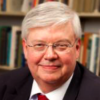
Mark R. Talbot
Professor
Team Members

Mark R. Talbot
ProfessorMark R. Talbot is associate professor of philosophy at Wheaton College. He received his B.A. at Seattle Pacific College, did graduate studies at Saint Louis University, and received His Ph.D. from University of Pennsylvania. His areas of academic expertise include philosophical theology, philosophical psychology, the epistemologies of the early modern philosophers, and the works of David Hume, St. Augustine, and Jonathan Edwards. His books include Suffering and the Sovereignty of God, Personal Identity in Theological Perspective, and The Indispensability of the Trinity, Modern Reformation.



